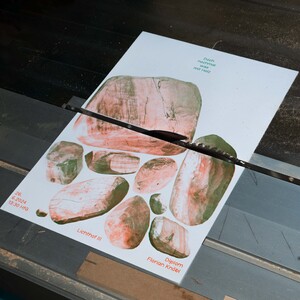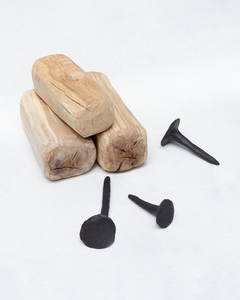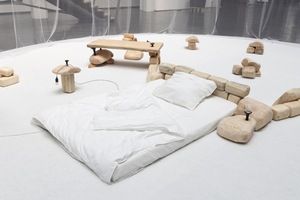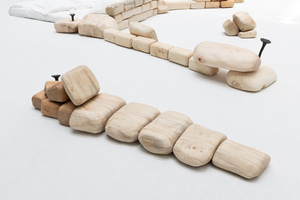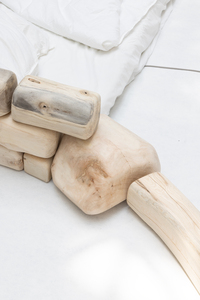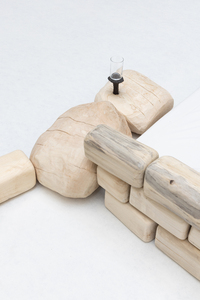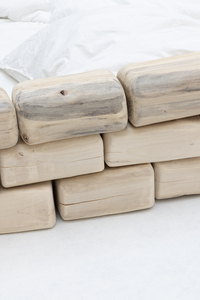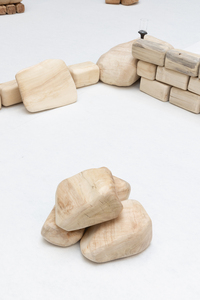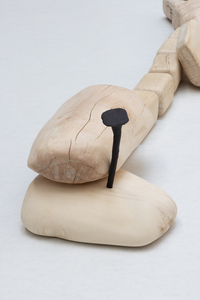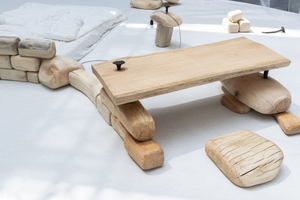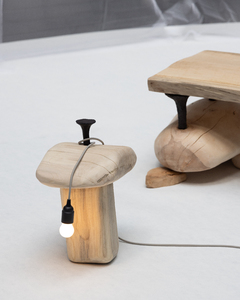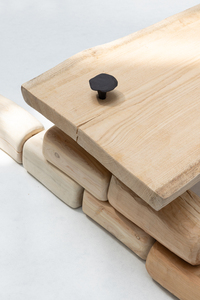"HfG Website"
| Begriff | HfG Website |
| Metakey | Freigabe Nutzung HfG (rights:usage_hfg) |
| Typ | Keyword |
| Vokabular | Rechte |
1864 Inhalte
- Seite 1 von 156
Plakat
- Titel
- Plakat
- Autor/in
- Kategorie
- Schlagworte
- Material
- Ort: Institution
- Ort
- Lichthof 3
- Stadt
- Land
- Beteiligte Institution(en)
- Titel
- Plakat
- Urheberrechtshinweis
- © Florian Knöbl
- Rechtsschutz/Lizenz
- Freigabe Nutzung HfG
- Medienersteller/in
- Beziehung/Funktion
- Projektleiter/in
- Semester
- Studiengang
- Typ der Abschlussarbeit
- Importiert am
- 20.10.2024
- Übergeordnete Sets
- 1
Holzziegel Nägel
- Titel
- Holzziegel Nägel
- Autor/in
- Kategorie
- Schlagworte
- Material
- Ort: Institution
- Ort
- Lichthof 3
- Stadt
- Land
- Beteiligte Institution(en)
- Titel
- Holzziegel Nägel
- Urheberrechtshinweis
- ©Florian Knöbl
- Rechtsschutz/Lizenz
- Freigabe Nutzung HfG
- Medienersteller/in
- Beziehung/Funktion
- Projektleiter/in
- Semester
- Studiengang
- Typ der Abschlussarbeit
- Importiert am
- 20.10.2024
- Übergeordnete Sets
- 1
Bett Schreibtisch
- Titel
- Bett Schreibtisch
- Autor/in
- Kategorie
- Schlagworte
- Material
- Ort: Institution
- Ort
- Lichthof 3
- Stadt
- Land
- Beteiligte Institution(en)
- Titel
- Bett Schreibtisch
- Urheberrechtshinweis
- ©Florian Knöbl
- Rechtsschutz/Lizenz
- Freigabe Nutzung HfG
- Medienersteller/in
- Beziehung/Funktion
- Projektleiter/in
- Semester
- Studiengang
- Typ der Abschlussarbeit
- Importiert am
- 20.10.2024
- Übergeordnete Sets
- 1
Tagesbett
- Titel
- Tagesbett
- Autor/in
- Kategorie
- Schlagworte
- Material
- Ort: Institution
- Ort
- Lichthof 3
- Stadt
- Land
- Beteiligte Institution(en)
- Titel
- Tagesbett
- Urheberrechtshinweis
- © Florian Knöbl
- Rechtsschutz/Lizenz
- Freigabe Nutzung HfG
- Beziehung/Funktion
- Projektleiter/in
- Semester
- Studiengang
- Typ der Abschlussarbeit
- Importiert am
- 20.10.2024
- Übergeordnete Sets
- 1
Kante Bett
- Titel
- Kante Bett
- Autor/in
- Kategorie
- Schlagworte
- Material
- Ort: Institution
- Ort
- Lichthof 3
- Stadt
- Land
- Beteiligte Institution(en)
- Titel
- Kante Bett
- Urheberrechtshinweis
- ©Florian Knöbl
- Rechtsschutz/Lizenz
- Freigabe Nutzung HfG
- Medienersteller/in
- Beziehung/Funktion
- Projektleiter/in
- Semester
- Studiengang
- Typ der Abschlussarbeit
- Importiert am
- 20.10.2024
- Übergeordnete Sets
- 1
Kante Bett
- Titel
- Kante Bett
- Autor/in
- Kategorie
- Schlagworte
- Material
- Ort: Institution
- Ort
- Lichthof 3
- Stadt
- Land
- Beteiligte Institution(en)
- Titel
- Kante Bett
- Urheberrechtshinweis
- ©Florian Knöbl
- Rechtsschutz/Lizenz
- Freigabe Nutzung HfG
- Medienersteller/in
- Beziehung/Funktion
- Projektleiter/in
- Semester
- Studiengang
- Typ der Abschlussarbeit
- Importiert am
- 20.10.2024
- Übergeordnete Sets
- 1
Mauer
- Titel
- Mauer
- Autor/in
- Kategorie
- Schlagworte
- Material
- Ort: Institution
- Ort
- Lichthof 3
- Stadt
- Land
- Beteiligte Institution(en)
- Titel
- Mauer
- Urheberrechtshinweis
- ©Florian Knöbl
- Rechtsschutz/Lizenz
- Freigabe Nutzung HfG
- Medienersteller/in
- Beziehung/Funktion
- Projektleiter/in
- Semester
- Studiengang
- Typ der Abschlussarbeit
- Importiert am
- 20.10.2024
- Übergeordnete Sets
- 1
Sitzecke
- Titel
- Sitzecke
- Autor/in
- Kategorie
- Schlagworte
- Material
- Ort: Institution
- Ort
- Lichthof 3
- Stadt
- Land
- Beteiligte Institution(en)
- Titel
- Sitzecke
- Urheberrechtshinweis
- © Florian Knöbl
- Rechtsschutz/Lizenz
- Freigabe Nutzung HfG
- Medienersteller/in
- Beziehung/Funktion
- Projektleiter/in
- Semester
- Studiengang
- Typ der Abschlussarbeit
- Importiert am
- 20.10.2024
- Übergeordnete Sets
- 1
Langer Nagel
- Titel
- Langer Nagel
- Autor/in
- Kategorie
- Schlagworte
- Material
- Ort: Institution
- Ort
- Lichthof 3
- Stadt
- Land
- Beteiligte Institution(en)
- Titel
- Langer Nagel
- Urheberrechtshinweis
- © Florian Knöbl
- Rechtsschutz/Lizenz
- Freigabe Nutzung HfG
- Medienersteller/in
- Beziehung/Funktion
- Projektleiter/in
- Semester
- Studiengang
- Typ der Abschlussarbeit
- Importiert am
- 20.10.2024
- Übergeordnete Sets
- 1
Schreibtisch
- Titel
- Schreibtisch
- Autor/in
- Kategorie
- Schlagworte
- Material
- Ort: Institution
- Ort
- Lichthof 3
- Stadt
- Land
- Beteiligte Institution(en)
- Titel
- Schreibtisch
- Urheberrechtshinweis
- ©Florian Knöbl
- Rechtsschutz/Lizenz
- Freigabe Nutzung HfG
- Medienersteller/in
- Beziehung/Funktion
- Projektleiter/in
- Semester
- Studiengang
- Typ der Abschlussarbeit
- Importiert am
- 20.10.2024
- Übergeordnete Sets
- 1
Lampe
- Titel
- Lampe
- Autor/in
- Kategorie
- Schlagworte
- Material
- Ort: Institution
- Ort
- Lichthof 3
- Stadt
- Land
- Beteiligte Institution(en)
- Titel
- Lampe
- Urheberrechtshinweis
- © Florian Knöbl
- Rechtsschutz/Lizenz
- Freigabe Nutzung HfG
- Medienersteller/in
- Beziehung/Funktion
- Projektleiter/in
- Semester
- Studiengang
- Typ der Abschlussarbeit
- Importiert am
- 20.10.2024
- Übergeordnete Sets
- 1
Schreibtisch
- Titel
- Schreibtisch
- Autor/in
- Kategorie
- Schlagworte
- Material
- Ort: Institution
- Ort
- Lichthof 3
- Stadt
- Land
- Beteiligte Institution(en)
- Titel
- Schreibtisch
- Urheberrechtshinweis
- ©Florian Knöbl
- Rechtsschutz/Lizenz
- Freigabe Nutzung HfG
- Medienersteller/in
- Beziehung/Funktion
- Projektleiter/in
- Semester
- Studiengang
- Typ der Abschlussarbeit
- Importiert am
- 20.10.2024
- Übergeordnete Sets
- 1
